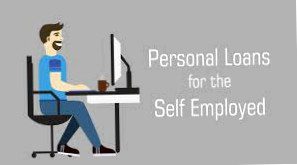As a self-employed person, it is often difficult to obtain a loan. Many banks are skeptical because the income situation is not as stable as for an employee. However, if it is necessary to make a major purchase or finance an investment, a loan can be a good solution.
A frequently asked question for the self-employed is: "Is the credit for the self-employed tied to a purpose of use??" This question is important because there are often more favorable interest rates for a certain purpose or certain types of credit are suitable for certain purposes.
In this article, we will explore whether loans for self-employed people are tied to a purpose and what options are available for self-employed people who need a loan.
Please note that this article provides general information and does not constitute legal advice. If you have specific questions, please consult with an expert credit attorney.

Purpose of the loan for self-employed persons
Self-employed people often need a loan to finance their businesses. The question here is whether this loan is tied to a specific use.
The answer depends on the type of credit you have. Some loans are only for specific purposes, such as investment in equipment or real estate. Other loans, on the other hand, can be used freely and are used for general financing of business operations.
Free use of credit gives the self-employed person more flexibility and allows them to use the money where it is most needed. However, free use of the loan also requires careful planning and budgeting to ensure successful repayment of the loan.
- When choosing a loan, self-employed people should therefore carefully check whether the loan is tied to a specific purpose or whether it can be used freely.
- It is advisable to compare several offers and make a careful plan for repayment.
- Advice from a bank or financial advisor can also be useful in finding the right loan.
What types of credit are there?
There are several types of credit offered by banks and other financial institutions. The most common types of loans offered are:
- Personal loans
- Installment loans
- Construction financing
- Car loans
- Business loans
Each of these types of loans has its own advantages and disadvantages and may be suitable depending on the borrower’s individual financial situation and needs. Some types of credit, such as construction financing and car loans, are often tied to a specific intended use.
Is the loan for the self-employed tied to a purpose of use??
It depends on the type of credit and the bank that offers it. Some loans for the self-employed, such as business loans, may be tied to a purpose, such as financing capital expenditures or maintaining working capital. Other loans, such as personal loans, can usually be used for any purpose.
However, it is important to note that self-employed individuals often have stricter lending guidelines and higher interest rates than regular employees. Therefore, self-employed people should carefully consider whether a loan is suitable for them and how it will affect their financial situation.
Is a purpose of use common in loans for the self-employed?
Loans for the self-employed generally do not have specific intended uses. Unlike traditional loans, which often require precise information on the purpose of use, self-employed people have a free hand in the use of the granted credit amount.
This is because self-employed people often not only want to make an investment, but also need to ensure their liquidity. A loan can offer a quick and uncomplicated solution for this, without the self-employed person having to specify a precise intended use.
Nevertheless, even in the case of loans for the self-employed, the bank may ask for the purpose of use. This may be the case, for example, if the loan amount is very high or if the bank sees an increased risk. In this case, the self-employed person must explain exactly what he needs the loan for.

In summary, a purpose is not common for loans for the self-employed, but may be required by the bank in individual cases. However, the self-employed should always make sure that the loan amount is used wisely so as not to accumulate unnecessary debt.
How do self-employed people benefit from a loan without an intended use?
A loan without a purpose offers many advantages to the self-employed. Unlike a restricted loan, they have more freedom in how they use the money. This allows them to be more flexible with their business and manage unforeseen expenses.
In addition, applying for an undied loan for the self-employed is easier than applying for a loan that is tied to a specific purpose. Banks have fewer requirements for the borrower, making it easier to make a lending decision.
Another important advantage of untied loans for the self-employed is that they are available for a longer term. This gives them the opportunity to plan for repayment in the longer term and budget their finances better. As a rule, interest rates on untied loans for the self-employed are also lower than those on earmarked loans.
- Bottom line: a no-purpose loan offers many advantages to the self-employed, including flexibility, ease of application and a longer term. It is a good option for dealing with unforeseen expenses and improving finances.
